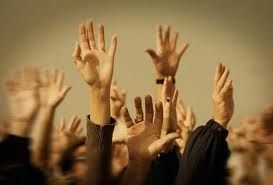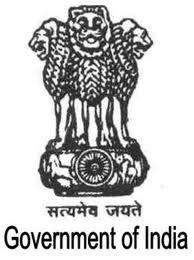

Anna Hazare’s movement against corruption has given rise to a number of questions and the most important being whether the State has failed or is it the frustrated lot, who could not get into the government, are trying to influence the decision making process of the political party in power by their philosophies or policies or politics? Is it a “back door entry†into the decision making process of the Government? Any Government in power would not like to be on the TV Screen as villain of any show. No government elected through ballot box would have done differently as done by the Government in power at the center. Therefore
Anna Hazare’s movement which goes under the banner of “Civil Society†movement has to be considered under these circumstances and not on the basis of “success†which it claims.
A new phrase “ civil society†has been coined in the Indian polity, though the said phrase has been there since the time the man was born. If one goes back into the history of Greek or Roman History, one will come across Socrates or Plato or Aristotle grappling with the concepts surrounding communal life in the polis, the Greek city-state. How could people obtain the ‘good life’ given the inherent conflicts between their needs as individuals and the needs of their society? Socrates, according to Plato, advocated that issues be resolved via public argument using the dialectic, a form of rational dialogue in which the arguers test propositions against other propositions in order to uncover the truth, that is, until they achieve a reasoning that cannot be refuted. Plato described a just society is one in which people dedicate themselves to the common good, practice civic virtues of wisdom, courage, moderation and justice, and perform the occupational role to which they are best suited. Plato’s ideal state is ruled by philosopher-kings, who make decisions based solely on the common good. For Aristotle, the best state is a polity which is ruled by the middle class, who are more likely to be moderate in their individual aspirations, and more likely to strive for equality, than either the rich or the poor. But since a small middle class can rarely stand up to the passions of the rich or poor it tends to become either rule by the rich minority or rule by the poor majority called also as democracy.
This conflict between State and the Civil Society has been there and the best system, rule by the majority elected through ballot, has it’s own pitfalls and disadvantages. But the “civil society†feels that the elected representatives once elected, thereafter they become insensuous to the aspirations of the people who have elected them. But unfortunately due to their own reasons large number of members of the civil society do not react and the elected fail to deliver the promised goals. It is this silent majority which Anna Hazare appears to have addressed by claiming to represent what is called as “Civil societyâ€.
It is said that the Civil Society speaks for the silent majority. Therefore civil society movement should be encouraged. It is a tricky statement as it speaks for the “silent majority†which always remains silent. How are we to gauge the response of the silent majority from the actions of a few individuals who hold demonstrations in small pockets to the glare of TV and print media. Anna Hazare’s movement would not have become a success if the TV and print media had not supported it. It is an unorganized gathering of people who came there with different aims. In a political party, one can always know their approach to any subject and those who do not subsribe to that have to leave the same. Whereas in an unorgnised movement, only the loud voice prevails or the voice for which publicity is given by ridiculing the views of those who do not support it. One journalist was heard saying that in one channel he heard the TV commentator saying that thousands of youth etc were in the Jantar Mantar protest rally which report made him to go to Jantar Mantar and to his surprise he saw only a couple of hundred people there Therefore the claimed by the unorganized civil society movement require to be analysed or else the country may slip into anarchy on the basis of publicity given to such movement.
One has to see the “civil society†movement in India in the backdrop of Egypt revolution which brought to the forefront the silent majority who were termed as bloggers / tweeters / facebook netizens. They came out of their cyber rooms and made the movement in Egypt a success. The Mubarak administration was taken up by surprise because the world of Tahrir Square protesters was larger then the one known by the government in power. This is explained in detail in the earlier writings on Egypt.
Whereas in India, such a revolution is not called for and if encouraged, it may lead to a brake down of constitutional machinery because the presence of elected representatives may become irrelevant. Whether the “civil society†movement really represented the silent majority can be seen from the way the members of the “civil society†were nominated for the Joint committee to draft Lok Pal Bill. They said that they need eminent legal luminaries so that they can advocate their views in the joint committee meeting and hence they had selected the five members nominated by them. Let it be said at the outset that they are men of knowledge and integrity. But if one peruses the names of the said five members, one can see a father-son duo, of course they are eminent lawyers from any standard one looks at their achievements and commitments, but why 2 from one family, Gandhian Anna Hazare, much respected Justice Santhosh Hegde and Aravind Kajriwal. This shows that except Justice Santhosh Hegde, the rest were the persons who were found on the stage. Jusice Hegde has said that he was a party to Jan Lokpal Bill. Does it mean that again they have ignored the ‘silent majority’ for whose cause they were fighting. What prevented them from selecting at least one or two who never participated in the agitation but who have excellent legal knowledge but were silent majority..
The above narration makes one feel that a small group of people with the help of media can embarrass a Government elected through ballot papers, to succumb to the demands of a few people claiming to represent the “civil society.†This requires a deep study lest the country should lose it’s direction. One cannot deny that the Civil Society is not inherently virtuous; it is also fractured from within. Good governance thus does not only mean reforming the state; the reformation of society also needs to be simultaneously undertaken. Therefore the Civil Society should speak through the elected body in a state which has parliamentary type of democratic Government. Let us be cautious and not overdo it.
